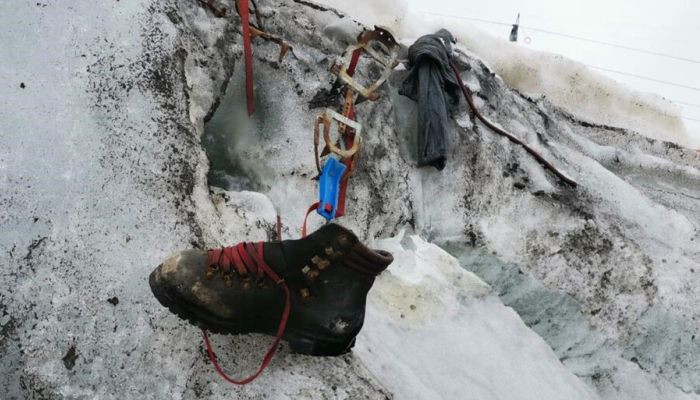Body of climber missing for nearly 40 years discovered in melting Swiss glacier
 A melting glacier in the Swiss Alps has revealed the body of a German mountain climber who went missing 37 years ago. Glaciers are vital to water security in Switzerland because they store massive quantities of snowpack in the winter that melts into rivers throughout the summer, supplying local communities with fresh water. However, as climate change accelerates, Switzerland's glaciers are melting at alarming rates, with their ice volume decreasing by 6% in 2022 alone, according to the Swiss Glacier Monitoring Network (GLAMOS). This is not the first time bodies have emerged from their retreating glacial tombs in the Alps. In 2017, two preserved bodies were discovered on the Tsanfleuron glacier in the Western Alps that had likely been there since 1942. Last year, mountaineers stumbled upon the wreckage and multiple corpses from a 1968 plane crash at the Chessjen glacier in Valais, according to Business Insider. In addition to human corpses, ancient artifacts have emerged from melting ice across Europe, including an Iron Age sandal and a 3,000-year-old shoe, both found in melting patches of ice on mountains in Norway. "The archaeological finds from the ice are a tiny silver lining to global warming," archaeologist Lars Pilø, who heads the Secrets of the Ice project in the mountains of central Norway, previously told Live Science in reference to newfound artifacts uncovered in the ice. "The retreating ice has revealed itself to be an enormous deep freezer," he said. |

22 Flights Cancelled, 250 Delayed Due To Delhi Smog
9713:12
OpenAI Launches New Image Generator GPT Image 1.5 (video)
324Yesterday, 18:00
Delhi continues to choke as AQI remains ‘very poor’ (video)
331Yesterday, 12:15
Elon Musk Makes History as the First Individual to Hit a $600 Billion Net Worth, Leaving Cubana Chiefpriest and 30BG Members Behind
58916.12.2025, 00:41
Velayati says ‘Trump plan’ for Caucasus mirrors Zangezur corridor
36215.12.2025, 22:56
Trump vows retaliation after three Americans killed in Syria attack
59014.12.2025, 19:47
